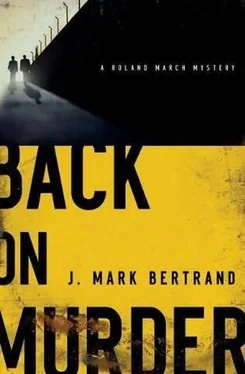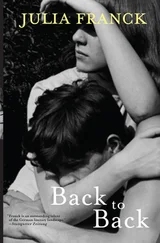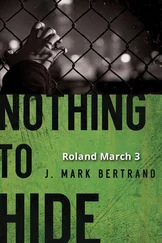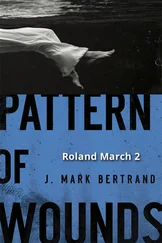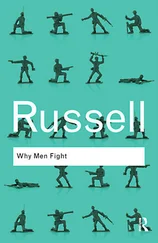“What did he tell you, sir?”
“That our victim has been the subject of a number of internal investigations, including an incident a couple of years ago when some evidence went missing from a drug bust. He was dirty, in other words. And when I told the captain, he called up Thomson’s boss, Big Reg Keller, and you know what he said?”
“Tell me.”
“He said the other officers in the unit had been concerned about Thomson. He was a loose cannon apparently, and was suspected of having a substance problem.”
Sure he was. Keller is wasting no time insulating himself, doing the necessary damage control, just as Salazar had done when he called me after my own shooting, making sure I couldn’t connect the dots between my request for help and the subsequent attack.
“Does that sit right with you?” Bascombe asks.
“Sit right? In what sense?”
“In the sense that when a brother officer eats his gun, you don’t trash his memory.”
“The blue wall of silence, you mean?”
“Common decency. What good does it do anybody for them to say he had a drug problem, or was a dirty cop or whatever? Whether it’s true or not, the man’s dead. He shot himself, right? So if he deserves anything, it’s pity. Instead, his own people are throwing him under the bus, when they ought to be sticking up for him.”
This isn’t what I expected from Bascombe, not by a long shot. The problem is, when you’ve singled someone out as a nemesis, it’s hard to get an accurate read on character. The lieutenant, since I know he’s never much cared for me, has always lacked psychological depth. He’s a one-note, a foot soldier in the anti-March crusade, without any nuance necessary. Suddenly I find myself agreeing with his instinct, if not his reasoning. Like Wilcox, whose move to Internal Affairs simply externalized a cherished principle, I think the dirty cops should go down. But then I know firsthand what it’s like to suffer for their benefit. If a cop snorts white lady from the evidence locker, plants a drop piece on an unarmed suspect, or takes money on the side for looking the other way, I don’t think a self-inflicted bullet to the brain should whitewash the record.
Call me naive, but I still subscribe to the “few bad apples” theory. We might be cut from the same cloth as the people we lock up, we might have a tendency to jackknife our relationships or channel the violent impulses that go hand in hand with what we witness into unprofitable avenues, but for the most part, we’re clean. Not squeaky clean, because no one is, but relatively unspotted. Because we didn’t get into this for the cheap thrill of packing a gun, or to work out our inferiority complexes, or because we couldn’t find a better line of work. Carter Robb has it right, in a way. We could have kept things safe, chosen decent occupations that make for polite dinner conversation, better pay and better hours and a far reduced probability of being shot or beat down. But we didn’t choose to be the safe guys. We chose to be the good guys, hard as that is when the world is bad.
And maybe Thomson was bad; maybe he was the sort like Wilcox said who should have been screened out by the personality tests. Even so, the man had changed. He’d changed enough to get his wife back. Enough to turn on his former friends. He’d changed enough that they had to put a bullet in him, which in my book made him one of us, not them.
The dates aren’t lost on me, either. The change in Thomson, his dark relapse, dates back a week or so, roughly the same time as the Octavio Morales death. That’s what shook Thomson up. That’s what made him seek me out. Something happened in that house. Either he was there or he found out about it secondhand. Whatever it was, he couldn’t live with it. Thinking of that girl tied to the bed, her blood on the sheets, her body now missing, I can imagine what was eating away at him, because it’s eating away at me, too.
Does Bascombe see any of this? Is he giving me some kind of unspoken license? That’s what I can’t figure out.
“What are you saying?” I ask him. “That I should take a harder look at his unit?”
He shakes his head, waves a dismissive hand, his eyes scrunching up at the excess of my misreading. “No, man, that’s not what I’m saying. But if you ask me, when you talk to his colleagues – as you no doubt will under the circumstances – nobody on my squad is gonna be upset if you omit the common courtesies, if you know what I mean.”
“Yessir,” I say, almost liking the guy. “I think I do.”
Bridger waits for me back at the scene, standing aloof from the circle of detectives who’ve gathered post-canvass to compare notes. In my absence, he’s gotten Thomson’s body bagged and on the stretcher, ready for transport. As I slip under the perimeter tape, all eyes turn. I can see from the glum expression on Ordway’s face and the way Aguilar keeps checking his watch that the canvass hasn’t gone well, so I skip it for now and head straight to the pathologist.
“I’ll have the details once the autopsy’s done,” Bridger says, “but my preliminary conclusion, big surprise, is that he died from a gunshot wound to the head.”
“Self-inflicted?”
A cautious nod. “Seems consistent. Clearly a contact wound. Your forensics people can connect the dots once they check the bullet recovered in the door pillar against the ballistics of his side arm. What I see here is consistent with the time the security guard claims to have heard the shot, but if that changes, I’ll let you know.”
“We’ll need a really thorough tox screen. Alcohol, drugs. Cocaine has been mentioned as a possibility, so I’d like to check for that.”
He gives me a perfunctory nod, not needing to be told how to do the job. I tell him anyway, just to be thorough. Then, after getting him to commit to a quick autopsy, I let him get on with it, turning my attention to the impatient detectives.
“Nobody saw anything,” Ordway says with a shrug.
Lorenz adjusts the sunglasses on the bridge of his nose. “They didn’t hear nothing, either. No gunshot, no nothing. So no help fixing the time.”
I glance through the tree line at the gray fences and low black roofs. Given the distance and the early morning storm, it’s not surprising we don’t have any witnesses from the neighborhood. Still, it was worth a shot.
“Here’s what I’m wondering,” Ordway says, picking up on the conversation I’d interrupted with my arrival. “Why’d he choose this exact spot to punch out? Say you were gearing up for your final sayonara – is this where you’d do it?”
Aguilar rubs his nose. “I’d do it in the bathtub.”
“The bathtub?” Lorenz says, looking over his sunglasses. “Seriously? Then don’t expect us to respond to that scene – ”
“What?”
“- unless you promise to keep your clothes on.”
Ordway chuckles. “Me? I’ve actually given this some thought, boys. At my age, you do. When my time comes, I’m taking the elevator to the top of the Transco Tower – ”
“It’s not called that anymore,” Lorenz says.
“The Transco Tower,” Ordway insists. “And when I get there, I’m gonna leap off into the air and see if I can land right in the middle of the Water Wall, right there on the steps where they take all the wedding pictures. Splat.” He smacks his hands together and gives us a demented grin. “People would be talking about that forever.”
Aguilar scrunches his nose up in thought. “From the Tower to the Water Wall? I don’t think you could make it that far, not as fat as you are.”
“But if I did,” Ordway says, “people would talk about it.”
I put a hand on his shoulder. “As interesting as this is, guys, there’s only one death we need to worry about here – ”
Читать дальше
